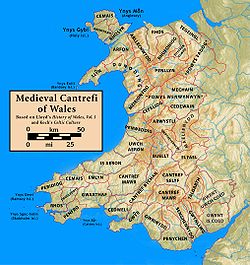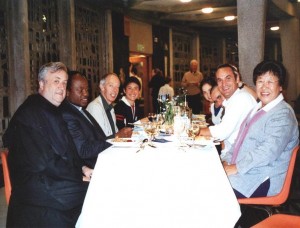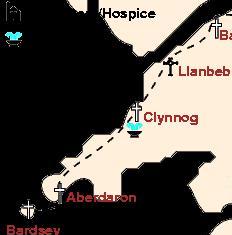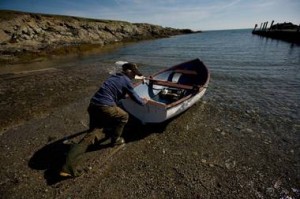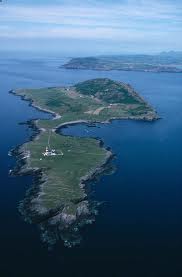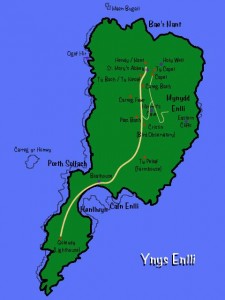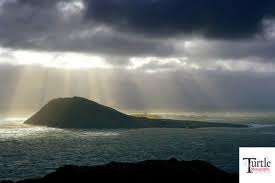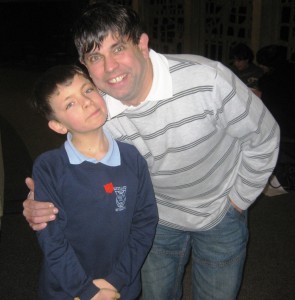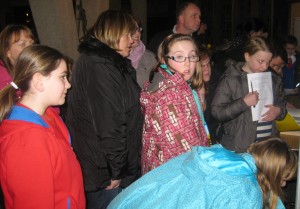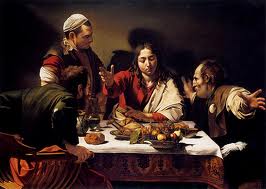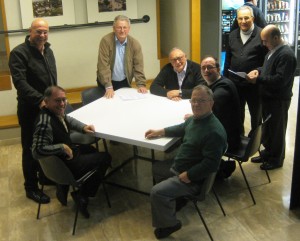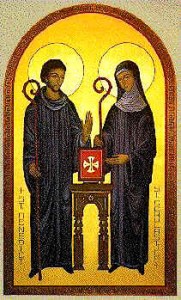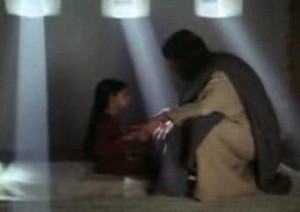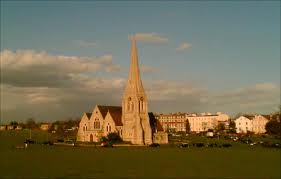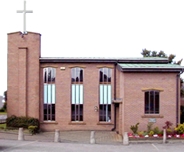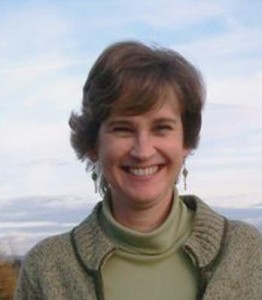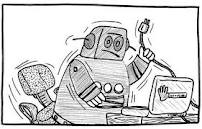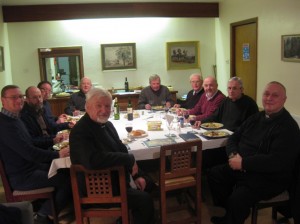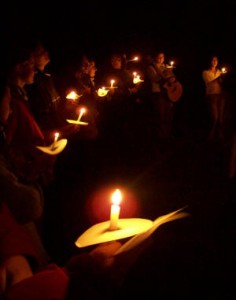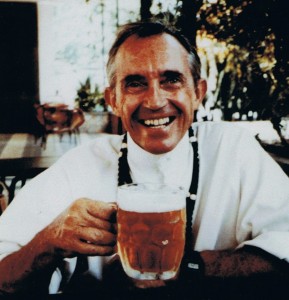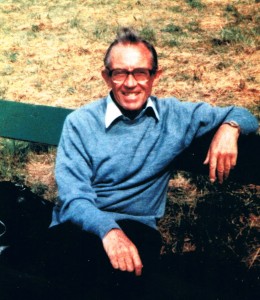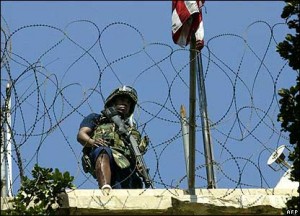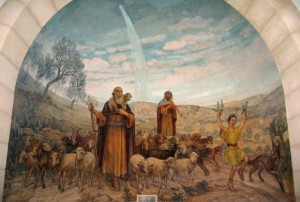“As soon as they left the synagogue, they entered the house of Simon and Andrew, with James and John. Now Simon’s mother-in-law was in bed with a fever, and they told Him about her at once. He came and took her by the hand and lifted her up. Then the fever left her, and she began to serve them.” (Mark 1, 29-31)
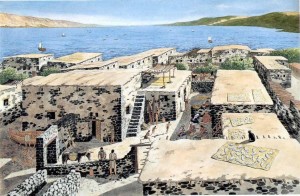 |
Artist’s reconstruction of Capernaum Jesus’ base
Imagine yourself in the first Christian community, a close community of friends and family and among them were some who had known Jesus very well, and some were still alive who had been with him as he worked his miracles. Jesus had died, risen and gone from them some 20 or 30 years before. This is the setting for the story that follows. It was written by a friend of mine who is a biblical scholar, and he writes in his native Italian. I have translated it into colloquial English.
–Tell us about Him
–I have already told you many times.
–Tell us again about Him.
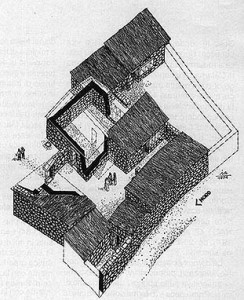 |
Reconstruction of Peter’s House
As on every Sabbath, as evening was falling, they gathered in her house. The old servant had welcomed them at the door, with his usual cordial and friendly greeting: “Shalom my brother; Shalom my sister” and with a huge smile for the little ones. She appeared, when everyone was already seated to eat, with an enormous pan of vegetables and fish. The bread was already on the table, and she served everyone with a great smile on her lips, that smoothed the ancient lines on her face. She served everyone, and looked like a queen.
They had listened to the reading of their fathers; they had recalled the sayings of the Master, they had praised and thanked God, and broken bread as so many times before. He had done all this with them, and now, in the darkness of night, they had left the table to gather round the fire. The little ones were already asleep and the others were begging her:
–Tell us about Him
–I have already told you many times.
–Tell us again about Him.
She was egged on by their insistence. Her reluctance was easily overcome each time. She was never too tired to tell them her story, and they were never tired of listening to her over and over again.
It was a Sabbath, like today, when He came into my bedroom. The fever had been raging for days. Lying on the bed, I felt my strength leaving me. I was worn to a ‘frazzle’. The burning heat had made my lips red hot, and I was covered in sweat. My daughter never left my side, day or night, mothering me; she was like my mother, and I her daughter. But she seemed more and more distant; I hardly noticed her as my eyes were fading under the shadow of death.
“I am poured out like water” – I said to myself, as I went further away from all around me – “and all my bones are out of joint; my heart is like wax; it is melted within my breast; my throat is dried up like a potsherd, and my tongue sticks to my jaws. ….but you, O Lord, do not be far away! O, my help, come quickly to my aid!”
When life was already slipping away He came into my room. I did not see Him as I no longer opened my eyes. I didn’t hear Him either. I was slipping away towards Sheol without the strength to resist.
A hand prevented the last step. He took me by the hand. His hand was strong and delicate – a decisive hold. He comforted me; he drew me to Himself.
It was a sweet awakening, like after a deep, contented sleep without any nightmares. I realised I was sitting on the bed, my daughter at my side and there, too, was Simon, Andrew, our faithful servant, and Him. I had never seen Him before this moment, and it was as though I saw the others for the first time. I had been dead, and now I was alive. Everything around me was new, and I felt a different person.
He still was holding my hand tightly. From hand to hand, life was passing. I was alive, with a life I had not lived before.
The words of our King David came to my mind. “…..you were holding me by my right hand. You will guide me by your counsel and so you will lead me to glory”. I spoke them looking at Him in that shadowy room, now fresh and familiar. I was looking at Him, but I felt everything was in His hand – in my hand.
“You led your people from Egypt in the strength of your arm”, I murmured to him. I now knew what that strong right hand was, that freed our fathers. It was the same that held me tight, and was saving me from death. I was in the valley of the shadow of death, and His hand had seized me, and brought me back to life.
He went through the same journey later – for all of you – for each one of us. In Jerusalem, outside the walls of the City, on a hill, the abyss of death was opened; he descended into hell and in the strength of His arm, and with the firm hold of His hand, He grasped each man and woman that lay in death’s dungeon. With the Risen Lord we are all risen.
But I did not know all about that, as yet. Then, I felt only a sense of new blood, pumping in my veins and a breath of new life in my nostrils. I felt…alive, alive, alive!
I found myself on my feet, and He still held my hand.
When He let go, I was already alive, very much alive.
I felt like a young girl again, in the house of my father, the strength of being a young wife, and organising the home of my husband. And I began, quickly, to prepare lunch for Him and the others in the house. The house, that had gone to sleep with me, woke up again.
Joanna lapsed into an absorbed silence, with her palms before her – and lifted a bit, as though she was again touching the hand of the Master.
Tell us some more about Him,
they started saying after the silence had enchanted them.
I have spoken about him many times to you.
Tell us again about Him….
Maybe, if I have time to translate the next section, of this beautiful story!
To view and read the blog in its original format, please go to the main blogsite:
